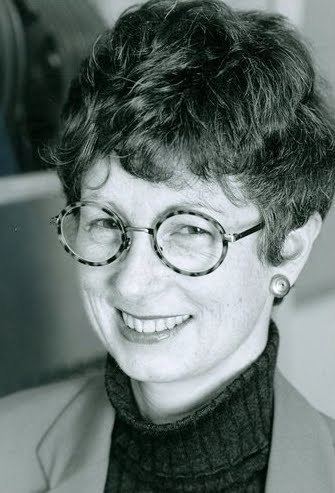The Department of Cinema and Media Studies, desiring both to pay tribute to Miriam Hansen and expand her legacy, inaugurated this annual lecture series in her honor in Autumn 2015. We aim to invite scholars who share Hansen’s sense of the need for history and theory to intertwine in the ongoing study of cinema and media.
Miriam Hansen conceived of, founded, helmed, and guided the Cinema and Media Studies program at the University of Chicago. From 1990 until her passing in 2011, Hansen grew the program from an area of concentration within the English department to a doctoral degree granting Committee and finally to a Department within the Arts & Humanities Division. Beyond the university, Hansen was a leading figure in what has been referred to as the “historical turn” in cinema studies. Inspired by work in the critical tradition of the Frankfurt School, she conceived of cinema as a cultural phenomenon which fused technology, aesthetics, and the role of film viewer and audiences. Her books - Babel and Babylon: Spectatorship in American Silent Film and the posthumously published Cinema and Experience: Siegfried Kracauer, Walter Benjamin, and Theodor W. Adorno - created original and compelling frameworks not only for understanding but also for working with the new experiences cinema offered to the twentieth century.
Past Lectures
Andreas Huyssen | April 12, 2018
The third Miriam Hansen Memorial Lecture took place in Spring 2018 and was delivered by Andreas Huyssen, the Villard Professor of German and Comparative Literature at Columbia University. Huyssen's lecture, titled "Topographies of Culture: Kracauer and the Metropolis" followed Hansen's account of Siegfried Kracauer's role as a theorist and historian of film to explore the role of the metropolis in Kracauer's topographical approach to modern culture.
Laura Mulvey | November 4, 2016
The second Miriam Hansen Memorial Lecture took place in Autumn 2016 and was delivered by Laura Mulvey, Professor of Film and Media Studies at the University of London’s Birkbeck College. Mulvey’s lecture, titled “The Cinema, the Female Star, and the Paradoxes of Mass Culture: Reflections on Max Ophuls’s ‘La Signora di Tutti'” was inspired by Miriam Hansen’s work on Max Ophuls’s 1933 Lieblei, and Mulvey reflected on similar themes in Ophuls’s 1934 film La Signora di Tutti which depicts the marketing and mechanical production of a female star for mass public consumption. Simultaneously, the film is an early example of Ophuls’s own flamboyant cinematic style, in which Ophuls pursues his own visual and narrative take on the melodrama; its Oedipal twists and turns, emotional impasses, and the drive toward death. In another reference to Hansen’s work, Mulvey reflected on the contemporary reframing of the cinema and its shift from 'publicness' to 'intimacy'.
Gertrud Koch | November 6, 2015
The inaugural Miriam Hansen Memorial Lecture took place in Autumn 2015 and was delivered by Gertrud Koch, Professor of Film Science at the Freie Universität Berlin. Koch’s lecture - “Uncorking and Old Bottle Found in the Atlantic Sea: What Does ‘Critical Theory’ Want from Films?” - delved into research conducting by Hansen herself prior to her passing. ‘Critical Theory’ was to be understood as the Frankfurt School’s conceptual answer to the crisis of philosophy in the frame of the sciences, and was meant to readjust the relation between different epistemic orders in the humanities, the sciences, philosophy and aesthetics. Koch’s lecture focused on the philosophical undercurrents that shape the thoughts on film and mass audiences in the work of Theodor W. Adorno, Walter Benjamin, and Herbert Marcuse and, in this regard, delved into the framework of Hansen’s final book.

